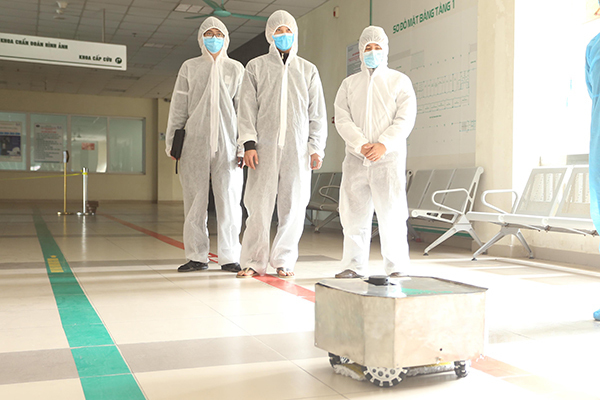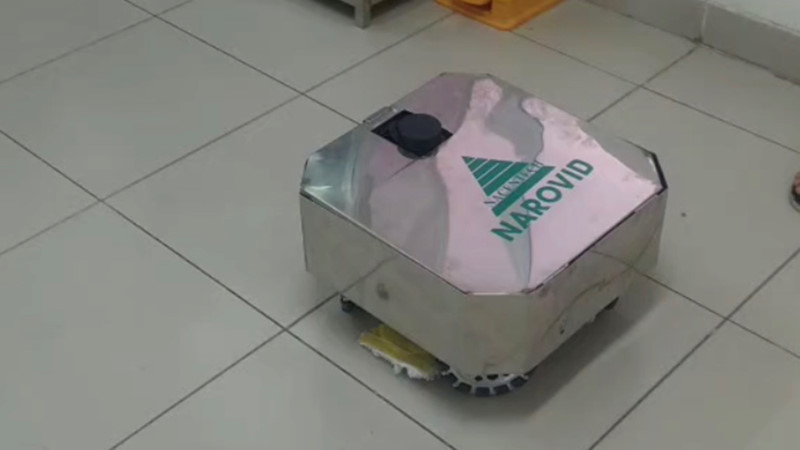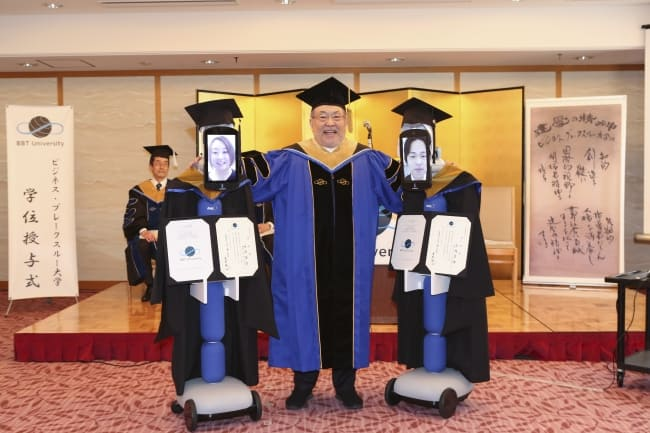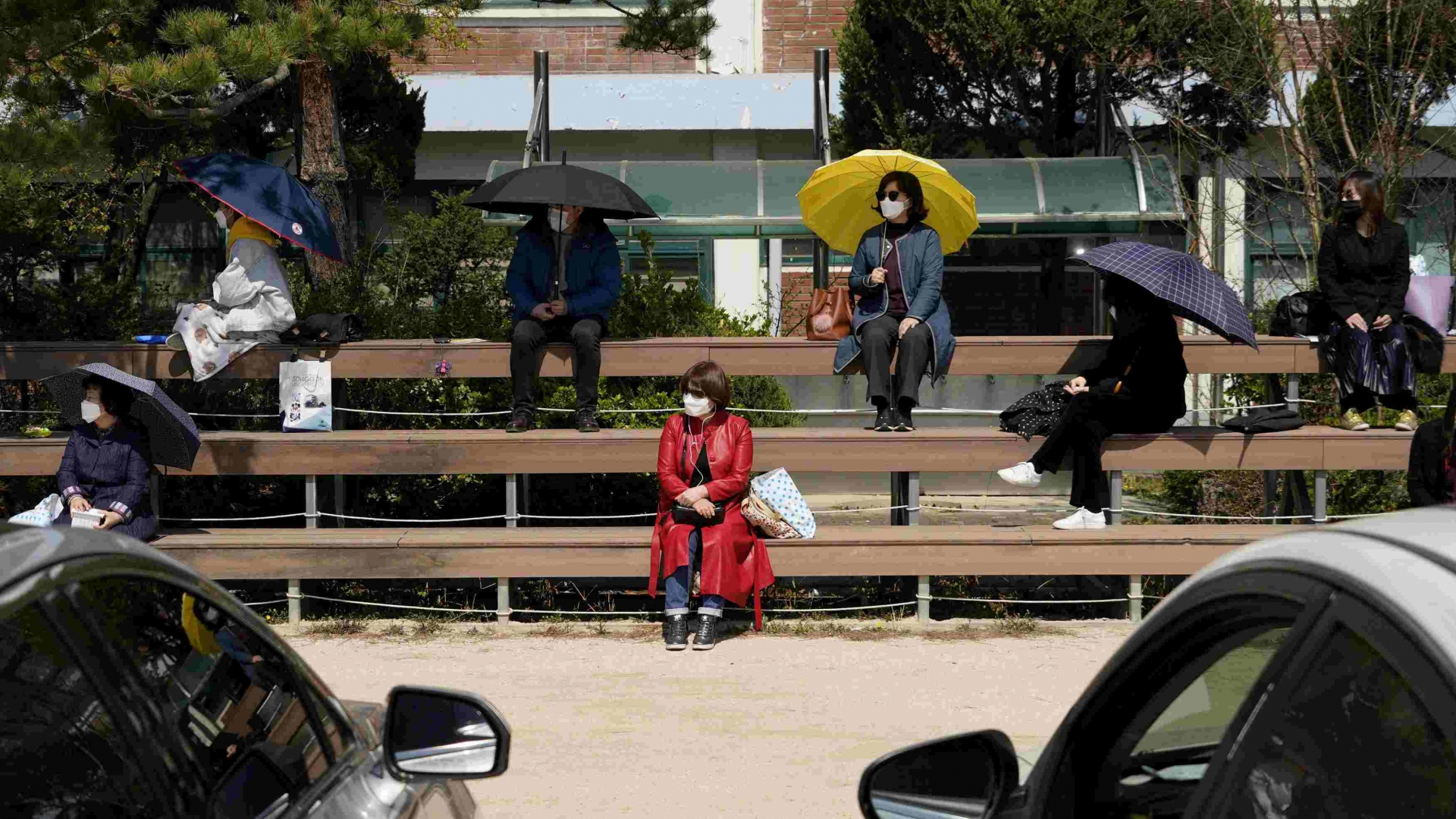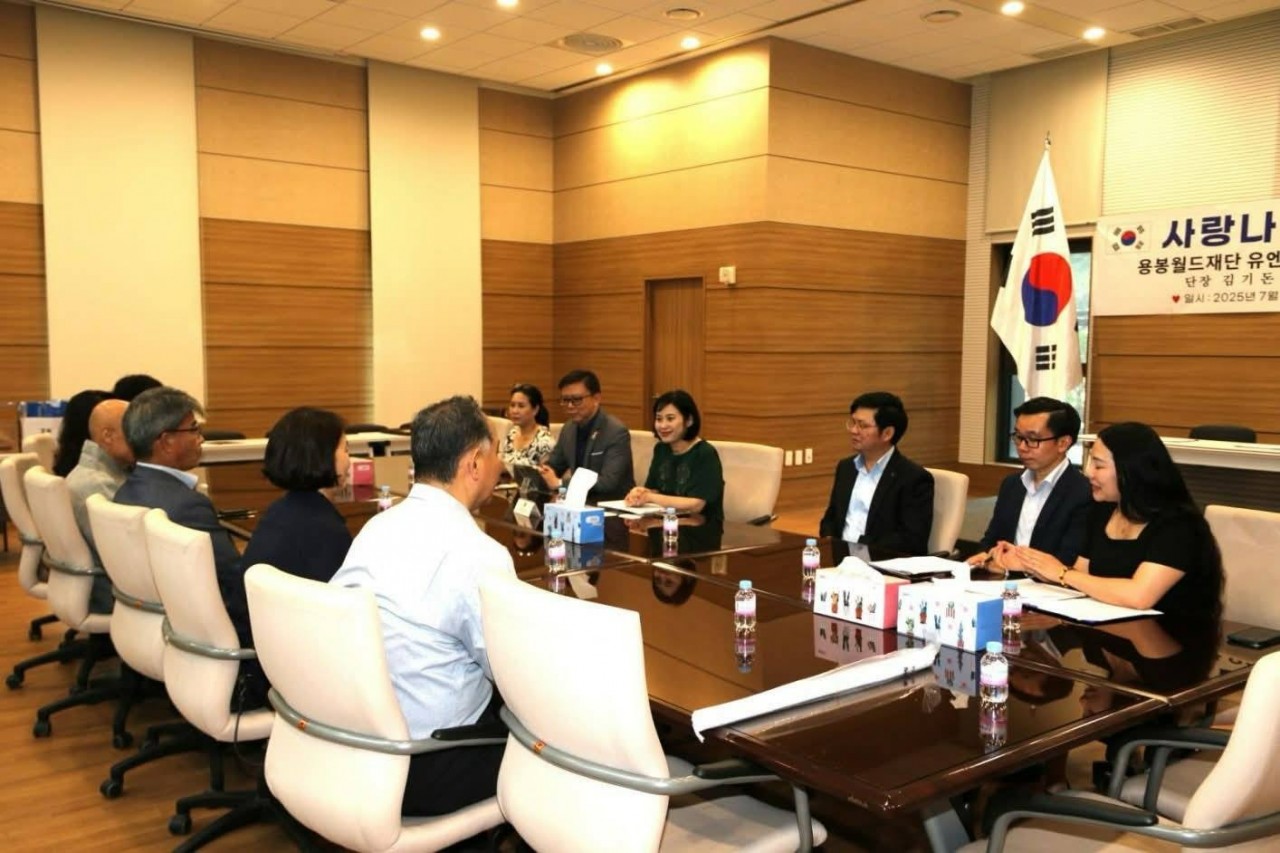Robot Baristas Reinforce Social Distancing at South Korean Cafe
In order to cope with the negative impacts of the coronavirus outbreak, one cafeteria in Daejeon, South Korea is now using a robot barista to welcome customers, handle orders, and serve them without any complaints.
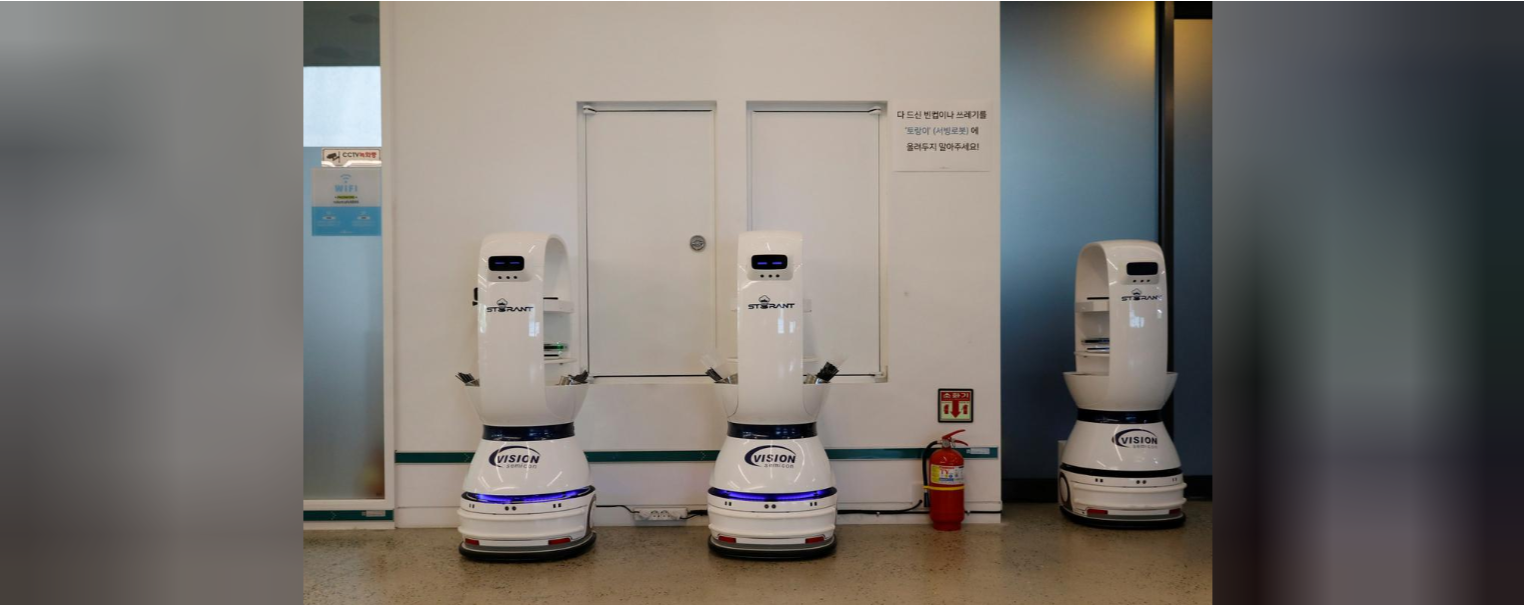 |
| Robot barista is seen in a café in Daejeon, South Korea. Photo: Routers |
The new robot barista at the cafe is "courteous and swift" as it delivers coffee and tea to its customers, reports Hyonhee Shin from Reuters.
"Here is your Rooibos almonds tea latte, please enjoy. It's even better if you stir it,". Hyonhee Shin was so excited when hearing the white capsule-shaped machine-waitress said to a lady.
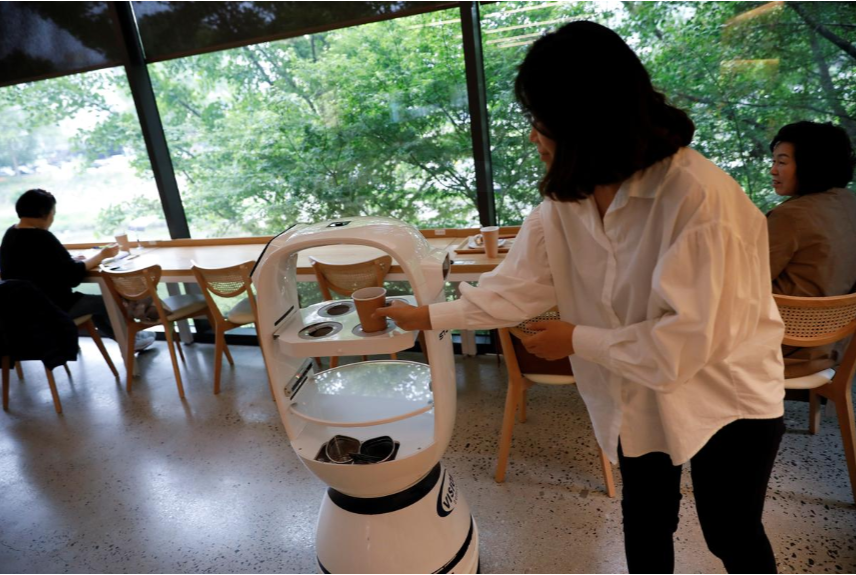 |
| The robot barista is delivering coffee and tea to its customer. Photo: Reuters |
South Korea was reporting 500 new cases per day in early March, over 11,000 people infected and 267 died up till now before it stabilized its outbreak with aggressive tracking and testing, recorded Reuters. Now it is seen that the country is gradually easing lockdown restrictions as it moves towards what the Government is calling "distancing in daily life".
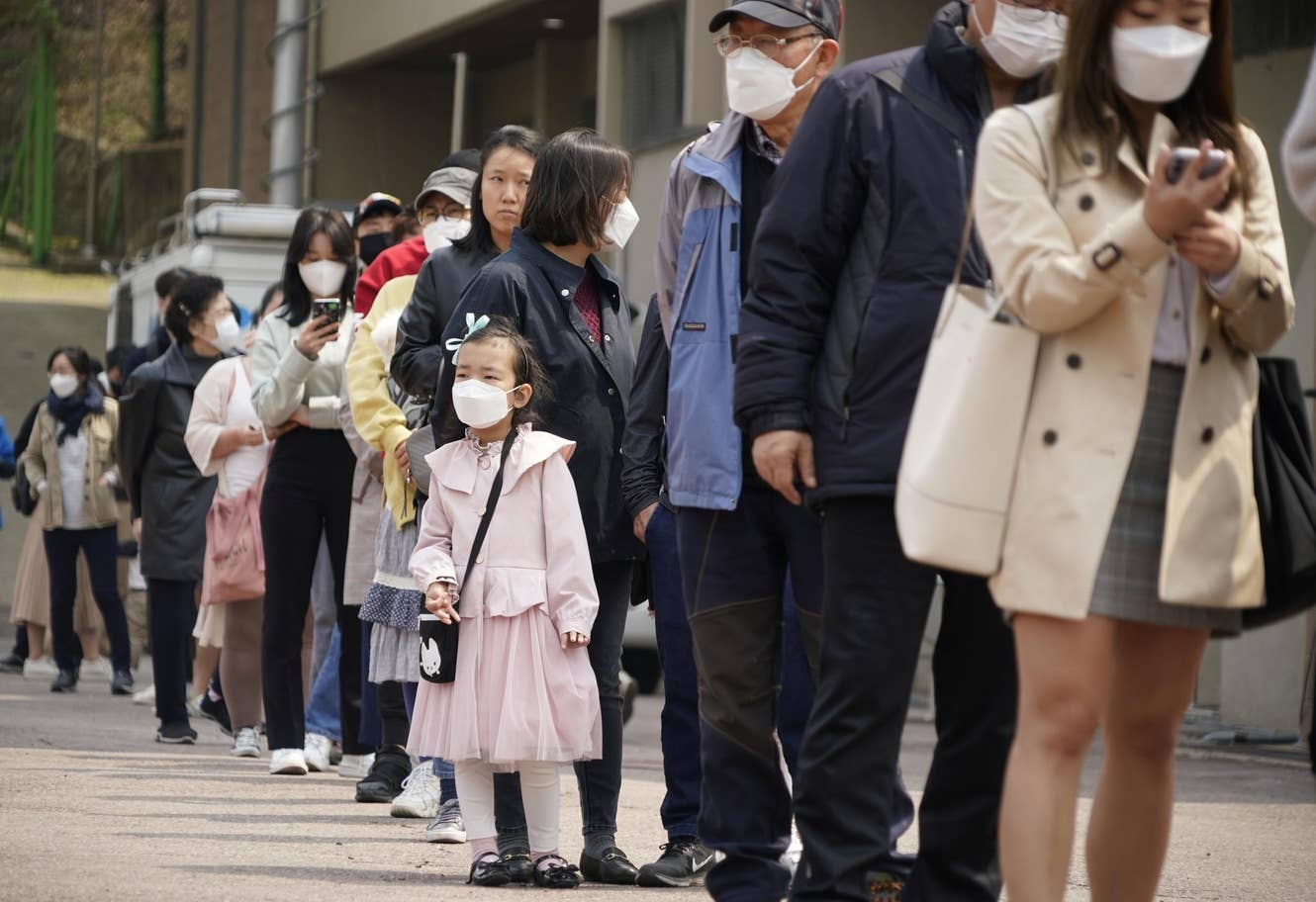 |
| South Korea is gradually easing lockdown restrictions as it moves towards what the Government is calling "distancing in daily life". Photo: Reuters |
Lee Dong-bae, the Director of research at Vision Semicon, a smart factory solution provider that developed the barista robot with a state-run science institute, confirmed that robots could help people maintain social distancing measures in public spaces.
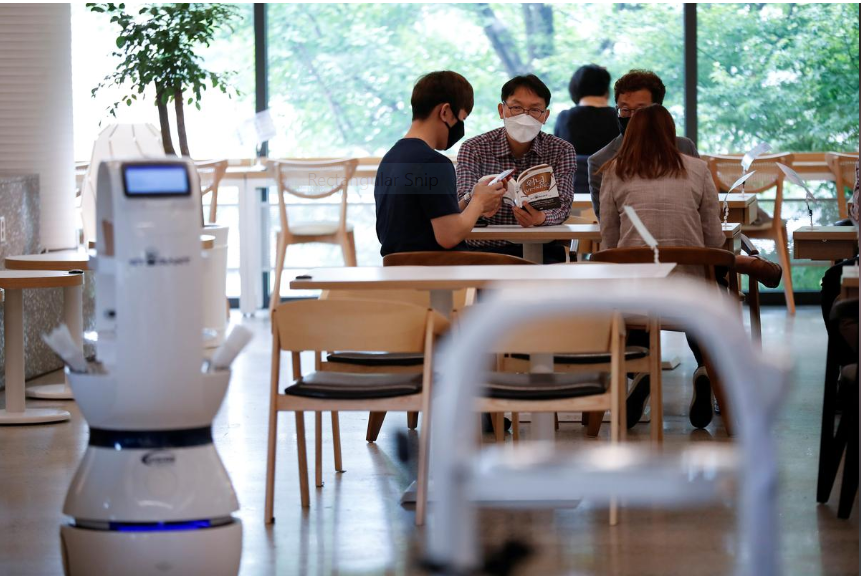 |
| Robots could help people maintain social distancing measures in public spaces. Photo: Reuters |
Mr Dong-bae said, cited by Reuters that his system needs no input from people from order to delivery, and tables were sparsely arranged to "ensure smooth movements of the robots, which fits will with the current ‘untact’ and distancing campaign."
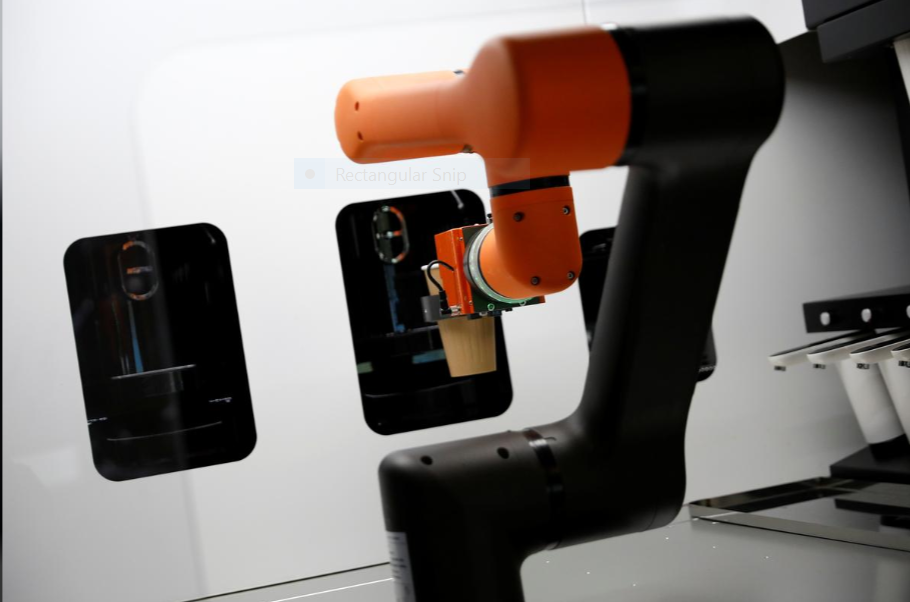 |
| The robot is making coffee for its customers. Photo: Reters |
The system uses a coffee-making robotic arm and a serving robot to serve drinks to customers at their seats with a menu of more than 60 different types of coffee. "It can also communicate and transmit data to other devices and contains self-driving technology to calculate the best routes around the cafe", shared Hyonhee Shin from Reuters.
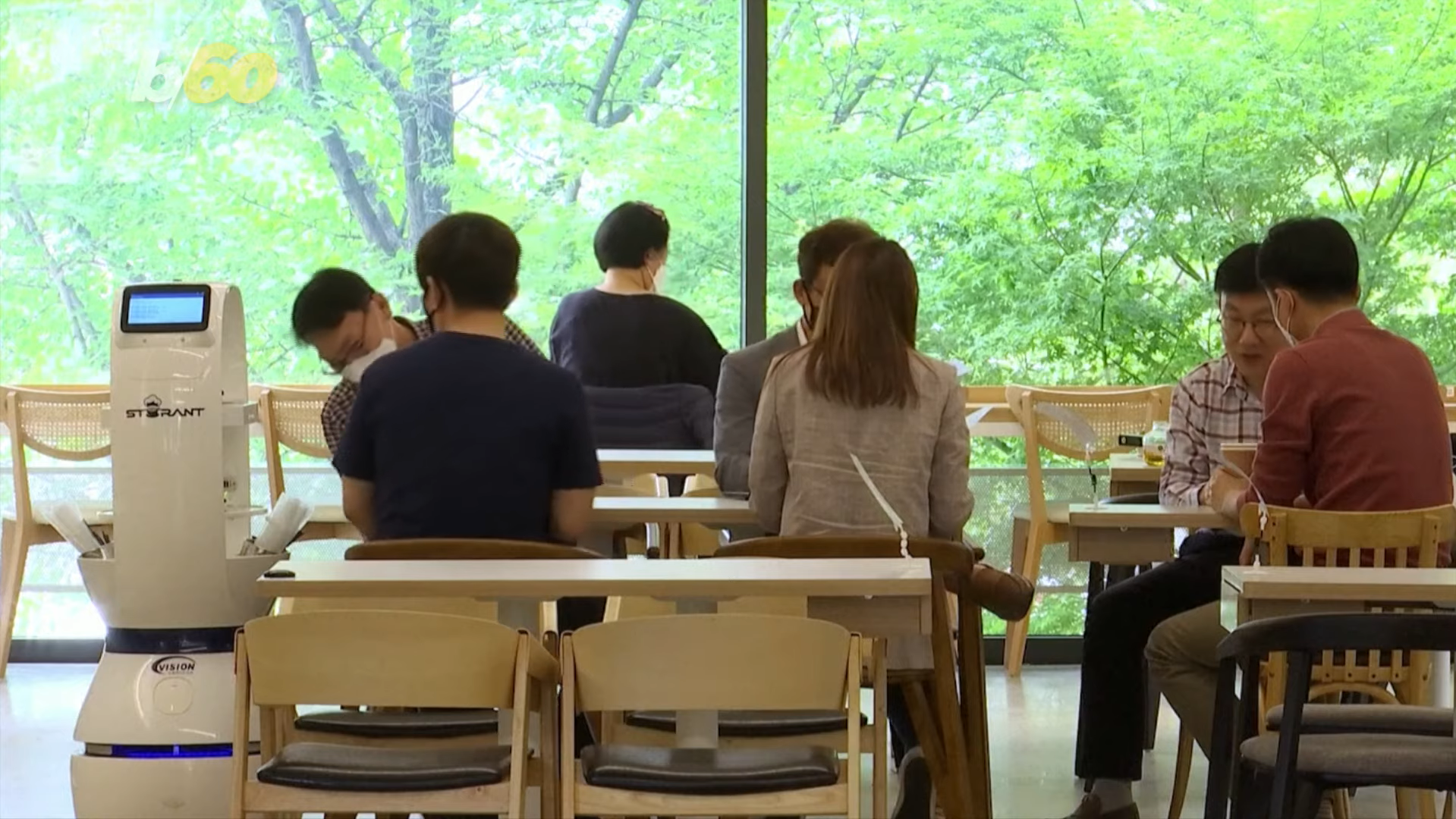 |
| “Here is your Rooibos almonds tea latte, please enjoy". Photo: Reuters |
| Managers visit once a day on average to inspect and clean the robots. They also monitor them remotely through surveillance cameras and sensors. While some customers like the convenience and novelty of robot coffee, others are not so keen. "Personally I prefer human baristas more because the robot can't customize drinks as delicately as humans can. I like weak coffee, but the robot is unable to control the strength of coffee well. Also, there is a delay in getting your drink when there are lots of people as a single robot needs to take care of all the orders. The orders could be processed more quickly if there were multiple human baristas," said a 30-year-old office worker, Lee Sang Jin. |
“Robots are fun and it was easy because you don’t have to pick up your order", Lee Chae-mi, a 23-year-old student, told the Reuters news agency. However, she is really concern about the bad scenario since "many of my friends are doing part-time jobs at cafes and these robots would replace humans”.
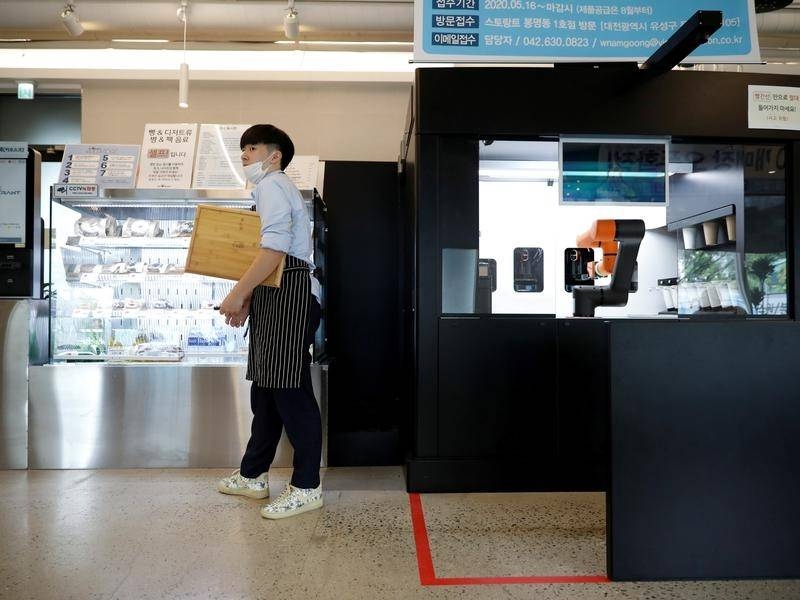 |
| A worker next to a barista robot in South Korea that makes coffee and brings it to customers. Photo: Reuters |
| The robots will be able to recognize voices and customer movements and offer personalized menu suggestions. South Korean industries, including restaurants, convenience stores, supermarkets, banks, and manufacturers are relying increasingly on robots and other automation. But not without protest: many Koreans, especially the young, are struggling to find work. Recently workers staged a strike, protesting growing use of unmanned small tower cranes at construction sites. Labour unions have also protested against the use of automated check-out counters at Emart, South Korea's biggest supermarket chain. |
Robot Baristas Reinforce Social Distancing at South Korean Cafe. Video: b/60
Coffee is just one of many industries that could be transformed by automated services in this tech-forward nation - a notion both exciting and worrisome as jobs become scarcer. Less than a minute after an order is placed, the robot sends a 4-digit code the customer can use to open a pick-up box. The robot can handle up to 14 drinks at a time. Drinks not retrieved within 10 minutes are thrown away, but another drink can be ordered at no extra charge. "It's really fun and convenient," said Choi Eun Jin, a 30-year-old office worker.
Robot Baristas Replace Human Coffee Servers in Seoul. Video: Bloomberg QuickTake
This kind of high tech has appeared even before the COVID-19 pandemic. "The area is crowded with office workers and local residents during lunchtime. So it's good to have a robot like this ... So you can get your coffee more easily.", the Dal.komm Coffee franchise has 45 robot-equipped outlets and sais. They're in shopping malls, company cafeterias, schools, and an airport. According to Bloomberg QuickTake, a Dal.komm Coffee robot can brew 90 cups an hour and about 300 cups a day on a single charge of beans and supplies. The drinks cost 2 to 3 US Dollars.
| More and more strict regulations have been introduced in South Korea when the Government has just issued new guidance on wearing face masks in public spaces in order to deal with the pandemic for the so-called "new normal". For instance, people are required to wear face masks when using public transport and taxis across the country. Wearing masks is also applied for all domestic and international flights as a request from the Health Ministry. From June 2020, owners of “high-risk” facilities such as bars, clubs, gyms, karaoke rooms, and concert halls will be required to use smartphone QR codes to register customers so they can be tracked down more easily when infections occur.
|
 | Robot delivers food to people quarantine amid Wuhan coronavirus outbreak A robot named Little Peanut is delivering food to people being quarantined after traveling on a flight with patients suspected to be infected by the ... |
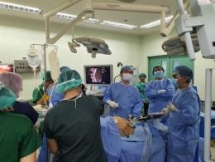 | Vietnamese doctors help with robotic surgeries in Philippines Doctors from HCM City-based Binh Dan Hospital have assisted their counterparts at the Philippine General Hospital with using robots to perform two surgeries to remove ... |
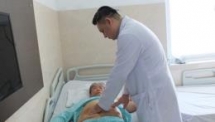 | Vietnam uses robot surgery for first time on kidney cancer patient Doctors at Binh Dan Hospital in Ho Chi Minh City used a robot to assist surgery in late April to remove a cancerous tumor from ... |

